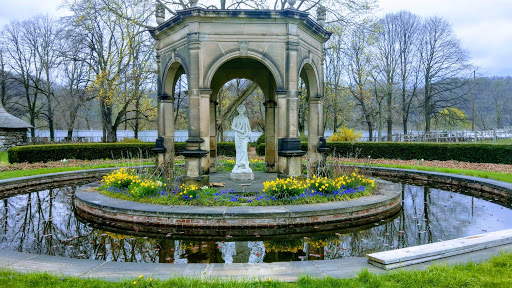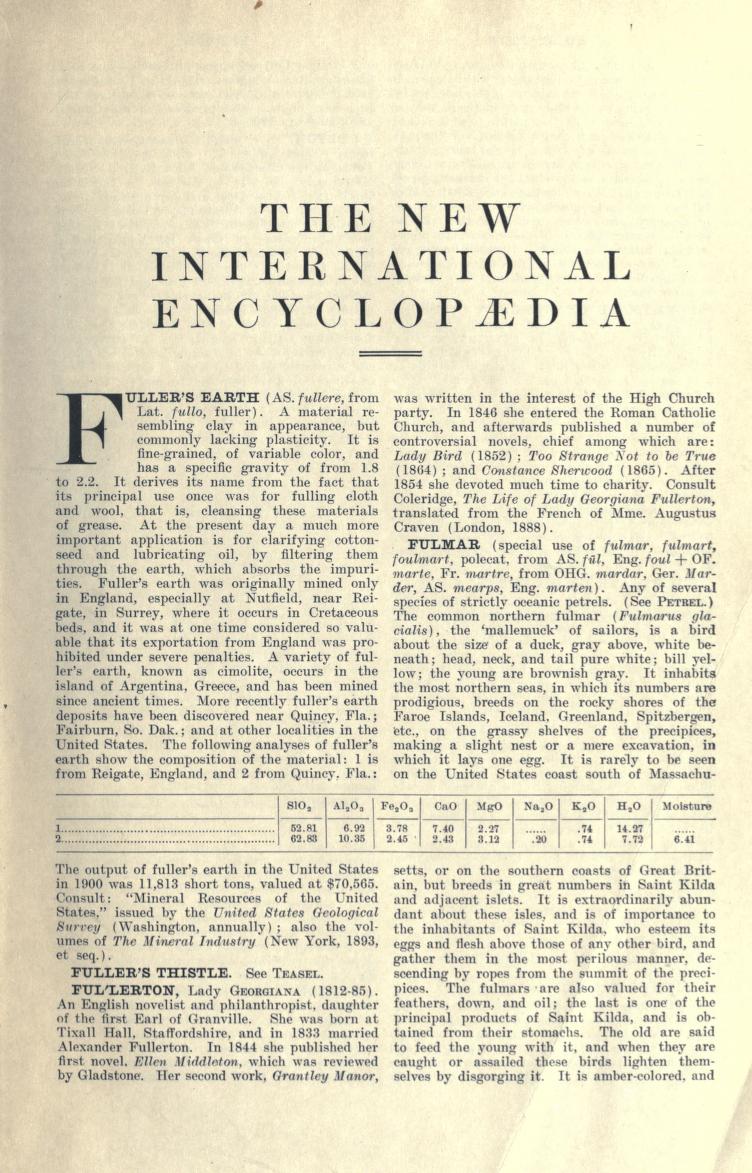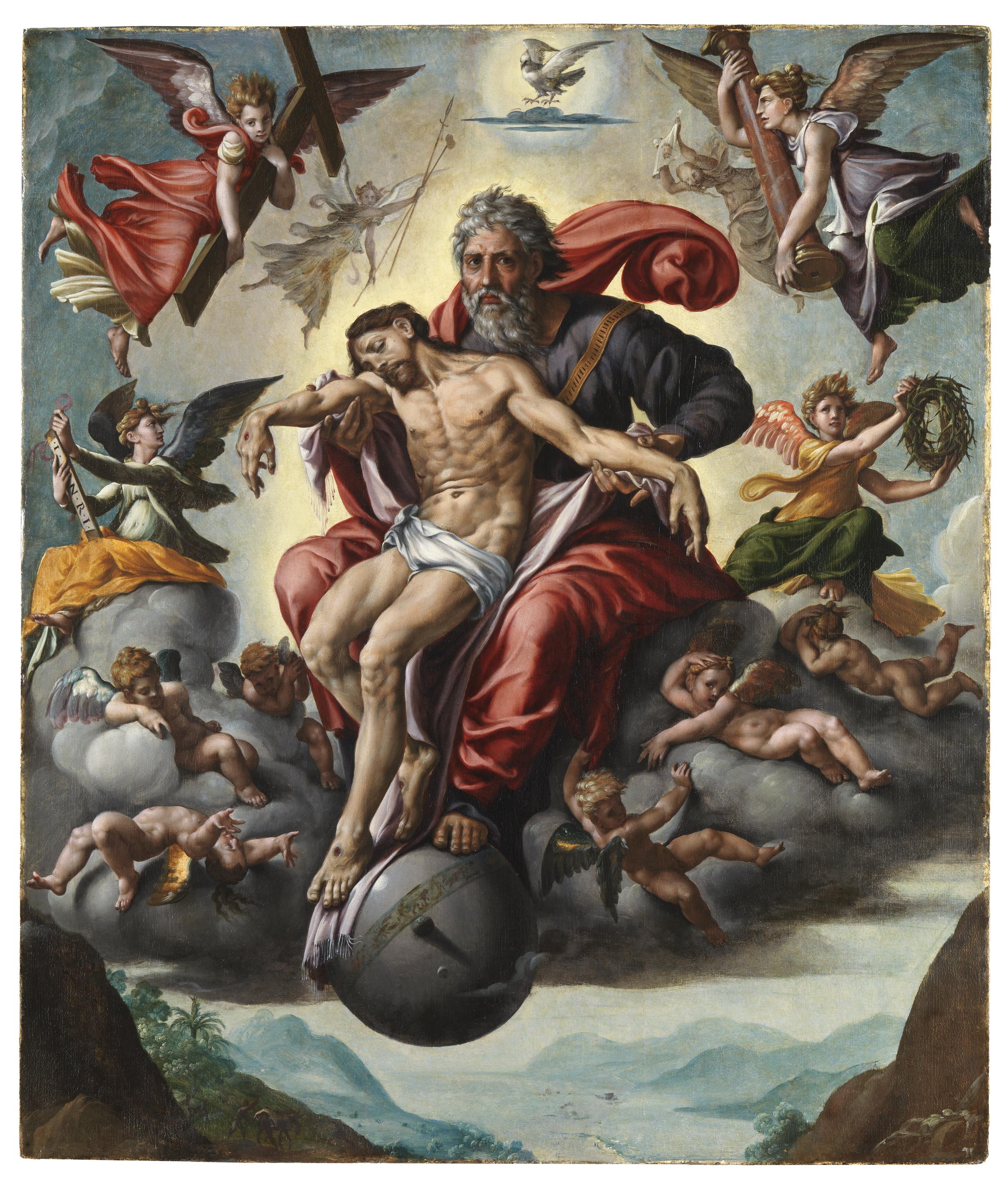|
Old Economy
Old Economy Village is a historic settlement in Ambridge, Beaver County, Pennsylvania, United States. Administered by the Pennsylvania Historical and Museum Commission, it lies on the banks of the Ohio River and is surrounded by downtown Ambridge. The Village is the last of three settlements established by the Harmony Society in the United States (another in Pennsylvania and one in Indiana). Established in 1824, it was designated a National Historic Landmark District in 1966 under the name of "Old Economy." Harmony Society The Harmony Society was a Christian theosophy and pietist society founded in Iptingen, Germany, in 1785. Due to religious persecution by the Lutheran Church and the government in Württemberg,Robert Paul Sutton, ''Communal Utopias and the American Experience: Religious Communities'' (2003) p. 38 the Harmony Society moved to the United States in 1803–1804, initially purchasing 3,000 acres (12 km²) of land in Butler County, Pennsylvania. On Febru ... [...More Info...] [...Related Items...] OR: [Wikipedia] [Google] [Baidu] |
Beaver County, Pennsylvania
Beaver County is a county in the Commonwealth of Pennsylvania. As of the 2020 census, the population was 168,215. Its county seat is Beaver. The county was created on March 12, 1800, from parts of Allegheny and Washington counties. It took its name from the Beaver River. Beaver County is part of the Pittsburgh, PA Metropolitan Statistical Area. History The original townships at the date of the erection of Beaver County (1800) were North Beaver, east and west of the Big Beaver Creek; South Beaver, west of the Big Beaver; and Sewickley, east of the Big Beaver—all north of the Ohio River; and Hanover, First Moon, and Second Moon, south of the Ohio. Geography According to the U.S. Census Bureau, the county has a total area of , of which is land and (2.1%) is water. It has a humid continental climate (''Dfa''/''Dfb'') and average monthly temperatures in the Beaver/Rochester vicinity range from 29.4 °F in January to 73.2 °F in July. Bodies of water * The Ohio ... [...More Info...] [...Related Items...] OR: [Wikipedia] [Google] [Baidu] |
Common Ownership
Common ownership refers to holding the assets of an organization, enterprise or community indivisibly rather than in the names of the individual members or groups of members as common property. Forms of common ownership exist in every economic system. Common ownership of the means of production is a central goal of communist political movements as it is seen as a necessary democratic mechanism for the creation and continued function of a communist society. Advocates make a distinction between ''collective ownership'' and ''common property'' as the former refers to property owned jointly by agreement of a set of colleagues, such as producer cooperatives, whereas the latter refers to assets that are completely open for access, such as a public park freely available to everyone. Christian societies The first church in Jerusalem shared all their money and possessions (Acts of the Apostles 2 and 4). Inspired by the Early Christians, many Christians have since tried to follow ... [...More Info...] [...Related Items...] OR: [Wikipedia] [Google] [Baidu] |
Celibacy
Celibacy (from Latin ''caelibatus'') is the state of voluntarily being unmarried, sexually abstinent, or both, usually for religious reasons. It is often in association with the role of a religious official or devotee. In its narrow sense, the term ''celibacy'' is applied only to those for whom the unmarried state is the result of a sacred vow, act of renunciation, or religious conviction. In a wider sense, it is commonly understood to only mean abstinence from sexual activity. Celibacy has existed in one form or another throughout history, in virtually all the major religions of the world, and views on it have varied. Classical Hindu culture encouraged asceticism and celibacy in the later stages of life, after one has met one's societal obligations. Jainism, on the other hand, preached complete celibacy even for young monks and considered celibacy to be an essential behavior to attain moksha. Buddhism is similar to Jainism in this respect. There were, however, significant cul ... [...More Info...] [...Related Items...] OR: [Wikipedia] [Google] [Baidu] |
Europe
Europe is a large peninsula conventionally considered a continent in its own right because of its great physical size and the weight of its history and traditions. Europe is also considered a Continent#Subcontinents, subcontinent of Eurasia and it is located entirely in the Northern Hemisphere and mostly in the Eastern Hemisphere. Comprising the westernmost peninsulas of Eurasia, it shares the continental landmass of Afro-Eurasia with both Africa and Asia. It is bordered by the Arctic Ocean to the north, the Atlantic Ocean to the west, the Mediterranean Sea to the south and Asia to the east. Europe is commonly considered to be Boundaries between the continents of Earth#Asia and Europe, separated from Asia by the drainage divide, watershed of the Ural Mountains, the Ural (river), Ural River, the Caspian Sea, the Greater Caucasus, the Black Sea and the waterways of the Turkish Straits. "Europe" (pp. 68–69); "Asia" (pp. 90–91): "A commonly accepted division between Asia and E ... [...More Info...] [...Related Items...] OR: [Wikipedia] [Google] [Baidu] |
Bernhard Müller
Bernhard Müller, known as Count de Leon (born March 21, 1788, Kostheim, Germany - died August 29, 1834, Natchitoches Parish, Louisiana), was a German Christian mystic and alchemist of uncertain origins. Biography Müller wrote to the Harmony Society (and other communes in the United States as well as numerous leaders in Europe) in 1829 proclaiming himself to be the "Lion of Judah" and a prophet in possession of the Philosopher's stone. As well as giving himself numerous fictitious names and titles, like Count de Leon, Archduke Maximilian von Este, and Proli, he claimed that he and his followers were the true Philadelphians and were ready to make a home for themselves with the Harmonites in Old Economy, Pennsylvania. The Harmonites, being religious searchers looking for a hopeful sign, and eager to justify their own religious prophesies, agreed to the visit, and in 1831, Müller arrived with his entourage of forty people (including a Dr. Göntgen.) Soon, Müller and the Harmon ... [...More Info...] [...Related Items...] OR: [Wikipedia] [Google] [Baidu] |
Medieval Deer Park
In medieval and Early Modern England, Wales and Ireland, a deer park () was an enclosed area containing deer. It was bounded by a ditch and bank with a wooden park pale on top of the bank, or by a stone or brick wall. The ditch was on the inside increasing the effective height. Some parks had deer " leaps", where there was an external ramp and the inner ditch was constructed on a grander scale, thus allowing deer to enter the park but preventing them from leaving. History Some deer parks were established in the Anglo-Saxon era and are mentioned in Anglo-Saxon Charters; these were often called ''hays'' (from Old English ''heġe'' (“hedge, fence”) and ''ġehæġ'' (“an enclosed piece of land”). After the Norman conquest of England in 1066 William the Conqueror seized existing game reserves. Deer parks flourished and proliferated under the Normans, forming a forerunner of the deer parks that became popular among England's landed gentry. The Domesday Book of 1086 record ... [...More Info...] [...Related Items...] OR: [Wikipedia] [Google] [Baidu] |
Curio
Curio may refer to: Objects *Bric-à-brac, lesser objets d'art for display * Cabinet of curiosities, a room-sized collection or exhibit of curios or curiosities *Collectables *Curio cabinet, a cabinet constructed for the display of curios People * Eberhard Curio (1932–2020), German ecologist * Gottfried Curio (born 1960), German politician *''Curio maximus'', a priesthood in ancient Rome that had oversight of the curiae * Gaius Scribonius Curio (other), the name of several ancient Romans, especially a father and son who were active in the 1st century BC *an online pseudonym for Diana Napolis Places *Curio, Switzerland, a municipality in the district of Lugano in the canton of Ticino in Switzerland *Curio Bay, a coastal bay best known as the site of a petrified forest some 180 million years old Popular culture * Curio (''Twelfth Night''), a character in the Shakespearean comedy ''Twelfth Night'' *Curio (band), a Japanese rock band * Curio (''The Shak''), a character on ... [...More Info...] [...Related Items...] OR: [Wikipedia] [Google] [Baidu] |
New International Encyclopedia
''The New International Encyclopedia'' was an American encyclopedia first published in 1902 by Dodd, Mead and Company. It descended from the ''International Cyclopaedia'' (1884) and was updated in 1906, 1914 and 1926. History ''The New International Encyclopedia'' was the successor of the ''International Cyclopaedia'' (1884). Initially, ''The International Cyclopaedia'' was largely a reprint of Alden's ''Library of Universal Knowledge'', which was a reprint of the British ''Chambers's Encyclopaedia''. The title was changed to ''The New International Encyclopedia'' in 1902, with editors Harry Thurston Peck, Daniel Coit Gilman, and Frank Moore Colby. The encyclopedia was popular and reprints were made in 1904, 1905, 1907 (corrected and expanded to 20 volumes), 1909 and 1911. The 2nd edition appeared from 1914 to 1917 in 24 volumes. With Peck and Gilman deceased, Colby was joined by a new editor, Talcott Williams. This edition was set up from new type and thoroughly revised. It ... [...More Info...] [...Related Items...] OR: [Wikipedia] [Google] [Baidu] |
Monopoly
A monopoly (from Greek language, Greek el, μόνος, mónos, single, alone, label=none and el, πωλεῖν, pōleîn, to sell, label=none), as described by Irving Fisher, is a market with the "absence of competition", creating a situation where a specific person or company, enterprise is the only supplier of a particular thing. This contrasts with a monopsony which relates to a single entity's control of a Market (economics), market to purchase a good or service, and with oligopoly and duopoly which consists of a few sellers dominating a market. Monopolies are thus characterized by a lack of economic Competition (economics), competition to produce the good (economics), good or Service (economics), service, a lack of viable substitute goods, and the possibility of a high monopoly price well above the seller's marginal cost that leads to a high monopoly profit. The verb ''monopolise'' or ''monopolize'' refers to the ''process'' by which a company gains the ability to raise ... [...More Info...] [...Related Items...] OR: [Wikipedia] [Google] [Baidu] |
Pittsburgh, Pennsylvania
Pittsburgh ( ) is a city in the Commonwealth (U.S. state), Commonwealth of Pennsylvania, United States, and the county seat of Allegheny County, Pennsylvania, Allegheny County. It is the most populous city in both Allegheny County and Western Pennsylvania, the List of municipalities in Pennsylvania#Municipalities, second-most populous city in Pennsylvania behind Philadelphia, and the List of United States cities by population, 68th-largest city in the U.S. with a population of 302,971 as of the 2020 United States census, 2020 census. The city anchors the Pittsburgh metropolitan area of Western Pennsylvania; its population of 2.37 million is the largest in both the Ohio Valley and Appalachia, the Pennsylvania metropolitan areas, second-largest in Pennsylvania, and the List of metropolitan statistical areas, 27th-largest in the U.S. It is the principal city of the greater Pittsburgh–New Castle–Weirton combined statistical area that extends into Ohio and West Virginia. Pitts ... [...More Info...] [...Related Items...] OR: [Wikipedia] [Google] [Baidu] |
Divine Economy
The Economy of Salvation, also called the Divine Economy, is that part of divine revelation in the Roman Catholic tradition that deals with God’s creation and management of the world, particularly his plan of salvation accomplished through the Church. ''Economy'' comes from the Greek ''oikonomia'' (economy), literally, "management of a household" or "stewardship". Church doctrine sees this as the elements and resources revealed by God as necessary for the sake of mankind's salvation through God's revelation and communication of himself to mankind. It refers to God's creation of all things, and of his governance of the world, especially with regards to Jesus' part in salvation, which includes his mission being fulfilled by his body, the Church, and through the sacraments. Paragraph 1103 of the ''Catechism of the Catholic Church'' also refers to the "Economy of Salvation" as the "economy of Revelation." The term "Economy of Salvation" is first used by Origen of Alexandria, alth ... [...More Info...] [...Related Items...] OR: [Wikipedia] [Google] [Baidu] |
Statue Of Harmonia Old Economy Village Pa
A statue is a free-standing sculpture in which the realistic, full-length figures of persons or animals are carved or cast in a durable material such as wood, metal or stone. Typical statues are life-sized or close to life-size; a sculpture that represents persons or animals in full figure but that is small enough to lift and carry is a statuette or figurine, whilst one more than twice life-size is a colossal statue. Statues have been produced in many cultures from prehistory to the present; the oldest-known statue dating to about 30,000 years ago. Statues represent many different people and animals, real and mythical. Many statues are placed in public places as public art. The world's tallest statue, ''Statue of Unity'', is tall and is located near the Narmada dam in Gujarat, India. Color Ancient statues often show the bare surface of the material of which they are made. For example, many people associate Greek classical art with white marble sculpture, but there is evidenc ... [...More Info...] [...Related Items...] OR: [Wikipedia] [Google] [Baidu] |




